Brokered Convention?
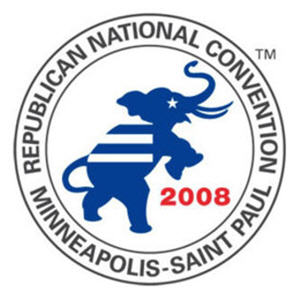 A brokered convention, a mythical beast that was last spotted in Republican circles in 1948 and 1952 for the Democrats, is the dream of political pundits. Every cycle, there’s talk of them happening for one or both parties. Since the advent of the modern primary system, however, it just hasn’t materialized.
A brokered convention, a mythical beast that was last spotted in Republican circles in 1948 and 1952 for the Democrats, is the dream of political pundits. Every cycle, there’s talk of them happening for one or both parties. Since the advent of the modern primary system, however, it just hasn’t materialized.
Tony Blankley joins the chorus today, beginning with the premise that “The Republican Party primary so far has been an exercise in none of the above.” This, notwithstanding that no votes have yet been cast.
In their turns, Sen. McCain, former Mayor Giuliani, former Sen. Thompson and former Gov. Romney seemed to be or seemed about to be front-runners — only to fall back as the party’s likely voters got a sharper look at each of them. […] Now former Gov. Huckabee — for the moment surging to the front — is on the receiving end of withering intraparty fire applied with a rhetorical violence usually reserved by Republican polemicists for a Clinton or a Kennedy.
There has never been a time when Romney was a front-runner in national polling, although he led in both Iowa and New Hampshire for months. Then again, he was spending millions of dollars running ads while others kept their powder dry. As for Huckabee, he was an unknown who’s suddenly jumped into contention; it’s natural that he would draw fire (for reasons discussed earlier).
It is as if each faction of the Grand Old Party feels a stronger passion to defeat its intraparty rival factions than to defeat the Democrats in November. This maximum instinct to deny victory within the party may be a sign of a philosophical rebirth (as in the Goldwater nomination and campaign of 1964), but it is also a sign of a party likely to lose the next general election.
The party has an uphill climb to retain the White House, given the low esteem in which the current occupant is held. But we’ve seen nothing more bitter on the GOP side of things than with the Democrats. The difference is that they begin with a legitimate favorite, Hillary Clinton, while there is no obvious Republican whose “turn” has come.
Yes, the Republican Party has factions. That’s a problem that has mostly plagued the Democrats in recent years but, after eight years of Bush, they’re angry and united in a desire to win. The GOP, by contrast, is trying to find itself after eight years of a president that has failed in many ways to live up to his conservative ideals and after having just lost the majority in Congress.
The fact that Republicans have not sorted out, weeks before the first meaningful vote, who their nominee is hardly means that they won’t do so by and by. Indeed, Blankley argues no argument at all in that direction and expresses much of the same wistfulness that has so many candidates still viable.
NRO’s David Freddoso offered a somewhat plausible “brokered convention” scenario last week. Essentially, because the process is so front-loaded, voters won’t have the usual signaling mechanisms to help them sort out which candidates can potentially win, meaning that they’ll be more likely to simply vote for the candidate they prefer.
May it be so. Still, a look at the Republican primary calendar shows that there are six voting days in seven states between January 3 (Iowa) and February 1 (Maine) which will help sort the wheat from the chaff before the mega-load of votes in 22 states on February 5.
If and only if all five of the major candidates wins a significant contest during that first month does the brokered convention talk get interesting. My strong guess, though, is that Mitt Romney or Fred Thompson will drop out if they haven’t won something major by then. Further, if Huckabee doesn’t win Iowa and then follow up with strong showings elsewhere — or a win in South Carolina — he’s finished, too.
Rick Brookhiser admits that “I have been writing about conventions professionally since 1976, and following elections since 1968. Every cycle, the breathless pieces on the brokered convention come out. It never happened in the last 39 years, and it won’t happen next year. When candidates lose a few, their money dries up, and the madness of crowds takes over.”
I think that’s right.
Also, it’s worth noting that there’s some brokered convention talk among Democrats, too. While Hillary Clinton is the clear front-runner, Barack Obama is giving her all she can handle — and now John Edwards is surging in Iowa, potentially shaking the race up even further. Chris Bowers discussed it back in April, explaining well why the selection process — and in particular the Super Delegate phenomenon on the Democratic side — makes it incredibly unlikely.

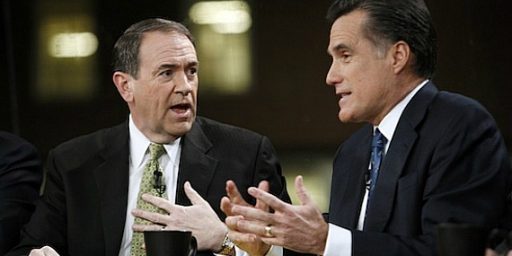
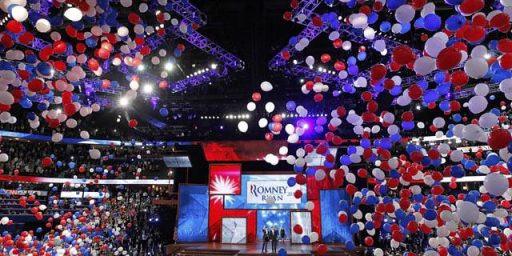
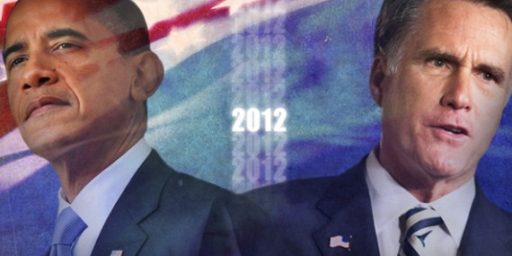
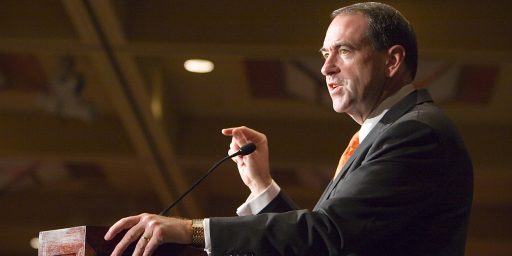

The only way I see a brokered convention is if the favorite going in is either (1) grossly unacceptable to the party faithful (McCain or Huckabee, perhaps), or (2) utterly unelectable, perhaps due to scandals that broke into the mainstream after he’d secured a large no. of delegates.
It’s hard to imagine the publicity’s being anything but unfavorable in such an event, tho given the media’s fawning over the GOP, I am probably mistaken.
Anyway, as JJ says, very unlikely to happen.
Assuming for a second that the primaries/caucuses broke just right to produce no clear leader even after Feb 5th, I still would doubt the brokered convention idea. Instead, I would suspect some one would accept the VP slot if the combined total of their votes would add up to a nomination.
Call me again after Feb. 5. ‘Til then–no predictions on a brokered convention.
Pardon me pimping my own posts, but I am conducting an experiment in blogging at my site. I am blogging an event that has yet to transpire – the GOP convention next September that is, in fact, brokered.
I’ve blogged two days of the convention so far:
Part 1
Part 2
I simply don’t see it happening–and I discussed why last night.
My suggestion is for the GOP to put 100 names in a bowl- 50 of them liberals, 40 of them RINOs and 10 conservatives -five of each of the latter category must believe in God, family, the constitution, be pro-life, and support personal as well as fiscal responsibility: then draw a name the day before the election. It should relect the present day GOP exactly.
Am I wrong that — by convention — delegates selected by primary elections are only bound on the first ballot?
It’s not at all hard to imagine a scenario in which no nominee has a majority at the end of the first ballot. And if that’s likely to be the case, that’s likely to have been obvious for some days prior to the start of the convention (meaning that the first ballot will only be a formality to unleash and expose the horse-trading that will already have been going on before the convention).
Now, then, what is there to trade? In the olden days, it was “Okay, Candidate X is from the Old South, the Old South states want a seat at the table, therefore, [Lyndon Johnson] shall be the Veep in exchange for our releasing our votes to [John Kennedy] for the top slot.” But I don’t think that’s going to happen this time.
Instead of being regional, the horse-trading is more likely to be issue-based, as in: “McCain is anathema to us because of immigration, Gang of 14, and McCain-Feingold. But we can live with Thompson instead of Romney.” Or “Giuliani is anathema to us because he’s pro-choice, pro-gun control, and pro-sanctuary city, and we’re hard-core GWOT partisans, but we can live with Thompson instead of McCain.”
In a brokered convention in which delegates are encouraged, even obliged, to cast aside their first choices, their second choice is likely to be the candidate who has the longest record of noncontroversial (among the party faithful) positions. That’s Fred. And thus might he go from, say, 28% on the first ballot to 53% on the second.